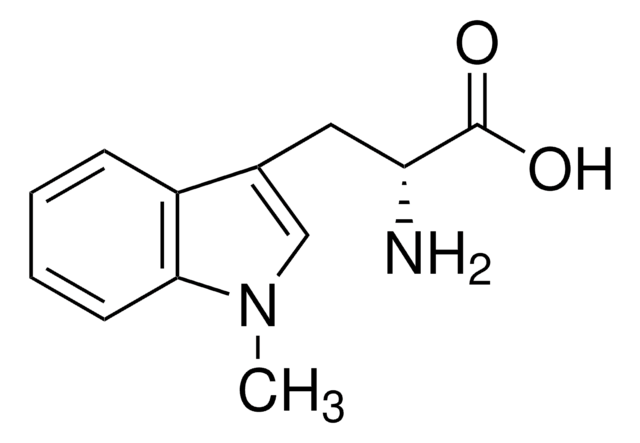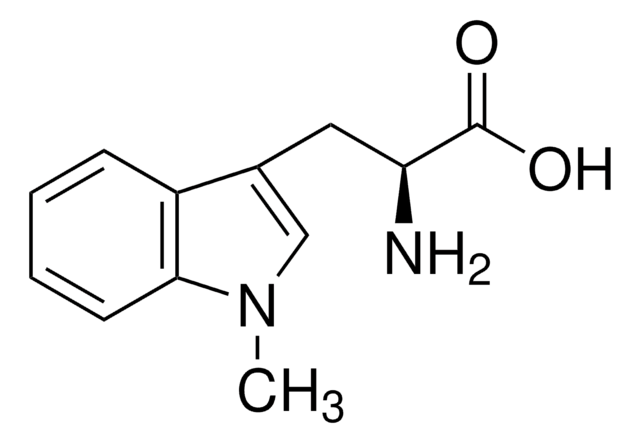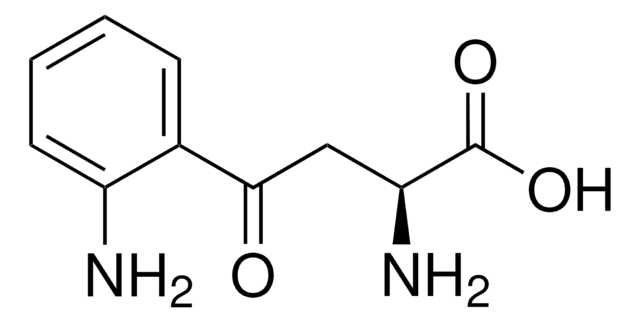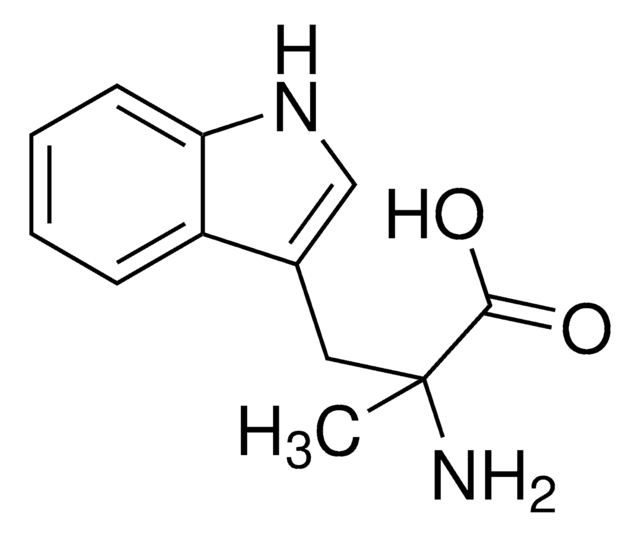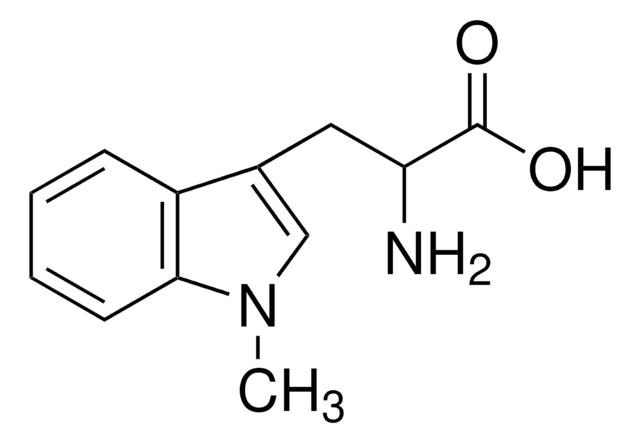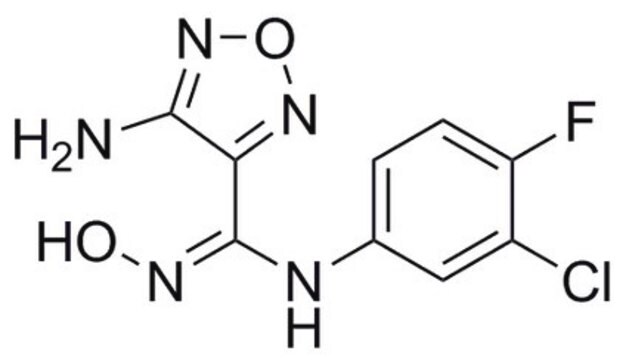MABF2055
Anti-IDO-2 Antibody, clone 4-3
clone 4-3, from mouse
Sinónimos:
Indoleamine 2, 3-dioxygenase 2, Indoleamine 2, 3-dioxygenase-like protein 1, Indoleamine-pyrrole 2, 3-dioxygenase-like protein 1
About This Item
Productos recomendados
biological source
mouse
Quality Level
antibody form
purified immunoglobulin
antibody product type
primary antibodies
clone
4-3, monoclonal
species reactivity
mouse
packaging
antibody small pack of 25 μg
technique(s)
western blot: suitable
isotype
IgG1κ
NCBI accession no.
UniProt accession no.
shipped in
ambient
target post-translational modification
unmodified
Gene Information
mouse ... Ido2(209176)
General description
Specificity
Immunogen
Application
Inflammation & Immunology
Quality
Western Blotting Analysis: 0.5 µg/mL of this antibody detected IDO-2 in 10 µg of mouse liver tissue lysate.
Target description
Physical form
Storage and Stability
Other Notes
Disclaimer
¿No encuentra el producto adecuado?
Pruebe nuestro Herramienta de selección de productos.
Storage Class
12 - Non Combustible Liquids
wgk_germany
WGK 1
Certificados de análisis (COA)
Busque Certificados de análisis (COA) introduciendo el número de lote del producto. Los números de lote se encuentran en la etiqueta del producto después de las palabras «Lot» o «Batch»
¿Ya tiene este producto?
Encuentre la documentación para los productos que ha comprado recientemente en la Biblioteca de documentos.
Nuestro equipo de científicos tiene experiencia en todas las áreas de investigación: Ciencias de la vida, Ciencia de los materiales, Síntesis química, Cromatografía, Analítica y muchas otras.
Póngase en contacto con el Servicio técnico
